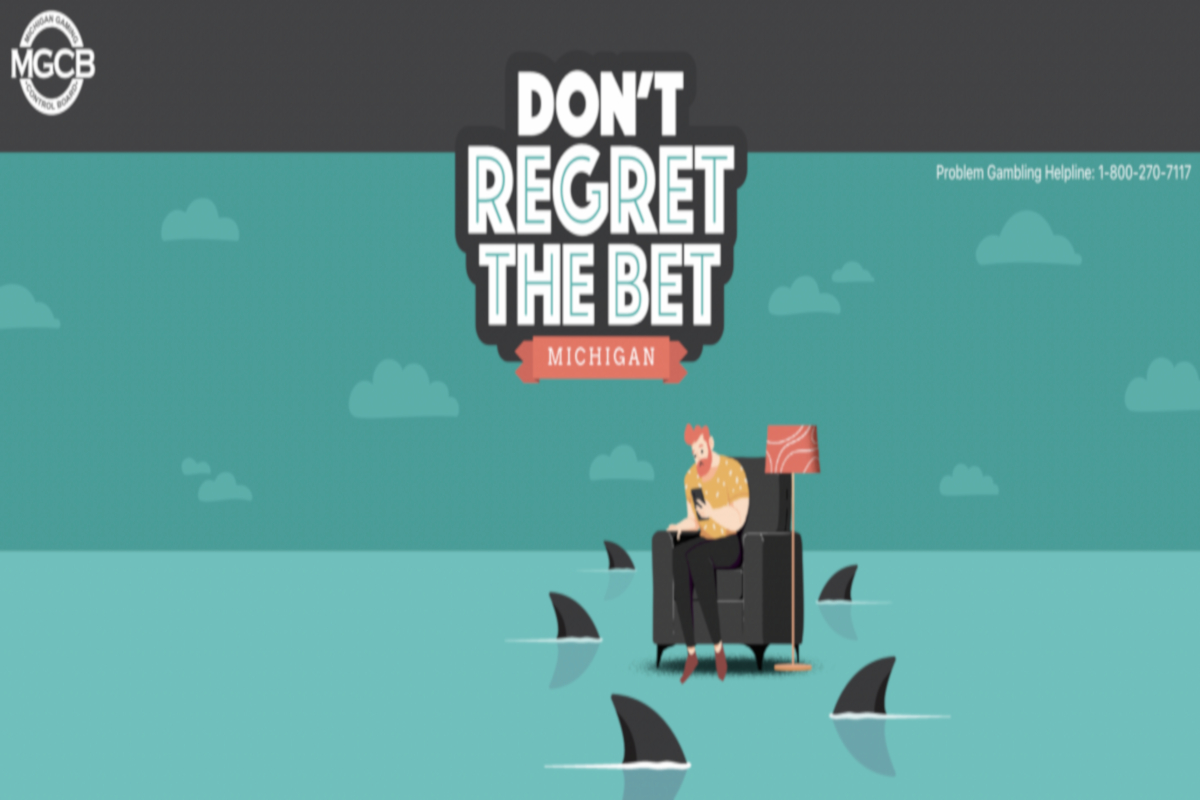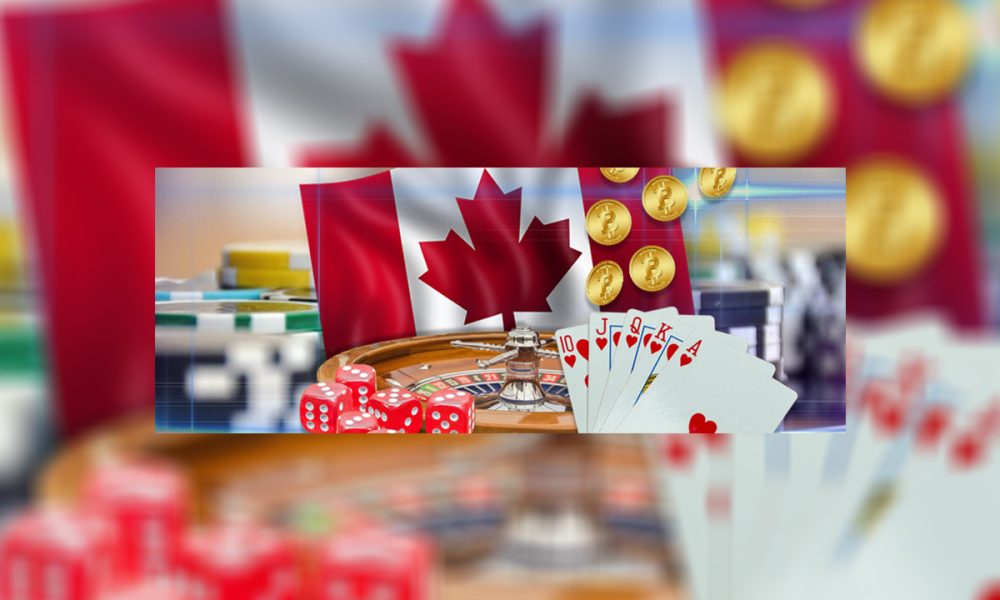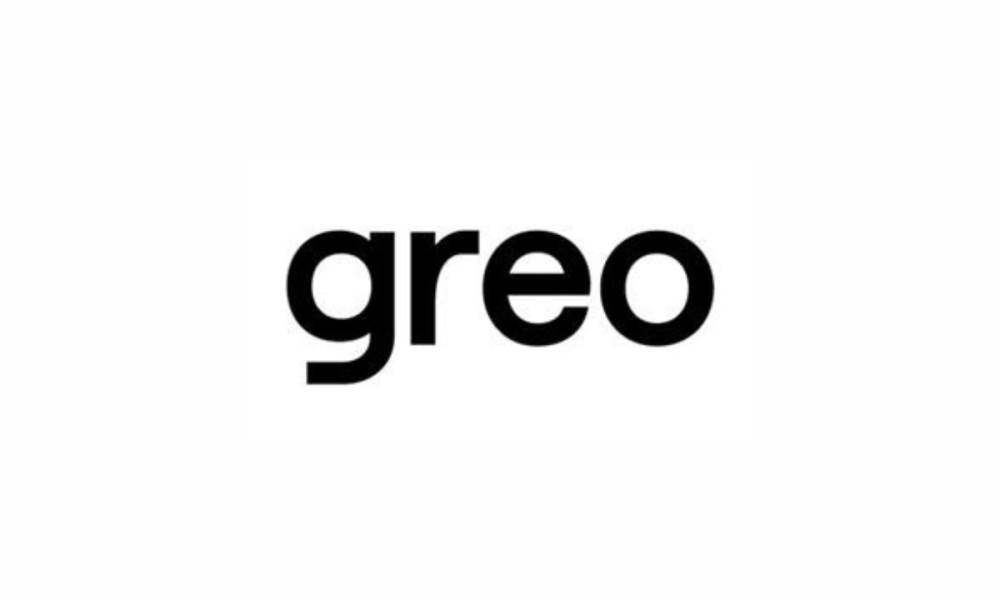Canada
Michigan Gaming Control Board Rolls Out Don’t Regret the Bet Responsible Gambling Campaign

The Michigan Gaming Control Board has launched its new Don’t Regret the Bet multi-media campaign as a way of encouraging residents to wager responsibly when utilizing one of the state’s many legal and regulated forms of gambling.
The responsible gambling exercise was developed in partnership with Lansing-headquartered King Media and is to include television and radio spots broadcast as part of the local coverage of professional and collegiate sporting events. The statewide exercise is to moreover encompass point-of-sale video advertisements, digital billboards and a social and digital media push over streaming and podcast audio services.
“Michigan residents will hear and see new public service messages on local television and radio stations and on popular social media platforms reminding them to enjoy gaming responsibly,” Henry Williams, Executive Director for the Michigan Gaming Control Board, said. “March is Problem Gambling Awareness Month, making it the perfect time to launch the Michigan Gaming Control Board’s educational campaign. The year-long campaign is a crucial step in our ongoing efforts to reach the public with information, tips and tactics promoting responsible gaming.”
As part of this fresh responsible gambling campaign and the Michigan Gaming Control Board has furthermore premiered the educational website at DontRegretTheBet.org for the state’s 10.1 million residents. This new domain features a broad range of responsible gaming information and links while being additionally accessible via the ‘responsible gaming’ section of the regulator’s own homepage at Michigan.gov/MGCB.
Funding for the Don’t Regret the Bet campaign was included in the Michigan Gaming Control Board’s budget for 2023, which was approved by local legislators last year before being signed into law by Michigan Governor Gretchen Whitmer. The watchdog has now embarked on a campaign to secure enough cash to extend this fresh responsible gambling campaign into 2024 and beyond.
“We are honored to partner with the Michigan Gaming Control Board to promote responsible gambling,” Coleen King, President for King Media, said. “Don’t Regret the Bet is a campaign that will have a positive impact on individuals and communities across Michigan and that aligns perfectly with our focus on meaningful work.”
Powered by WPeMatico
Canada
Greo and CCSA Release New Report Named “Gambling Availability and Advertising in Canada: A Call to Action”

Recent gambling policy changes in Canada have led to increased opportunities to legally bet on sports and gamble online, 24 hours a day, seven days a week. The report “Gambling Availability and Advertising in Canada: A Call to Action” looks at the impacts of legal gambling in Canada since the approval of the Safe and Regulated Sports Betting Act in 2021. The report recommends developing a pan-Canadian strategy to address gambling-related harms. This is a new report by Greo Evidence Insights (Greo) and the Canadian Centre on Substance Use and Addiction (CCSA).
This call to action is in response to the significant increase in gambling advertising on billboards, social media, at commercial breaks during sports broadcasts and during sporting events. Increased gambling availability and advertising are expected to contribute to increased gambling in Canada, thereby posing a significant risk of harms among the general population, particularly for youth, young adults and other vulnerable populations.
The report also describes how the increased availability of gambling and in gambling advertising are of great concern because:
- The types of gambling being made available and promoted (single-event sports betting and live or in-play betting) are associated with a greater risk of harm. For example, single-event sports betting increases gambling intensity and gives an illusion of control over the outcome as people believe their knowledge of the game gives them a competitive edge.
- The volume of gambling advertisements repeatedly pairing sports with betting normalizes gambling, leading people to think of betting as an integral part of being a sports fan.
- Increased availability of gambling and in gambling advertising are happening at a time when many people in Canada are more vulnerable to problematic gambling and gambling-related harms because of the lingering health impacts of COVID-19 and a rise in the cost of living.
“Over the last few years, we have witnessed some of the most significant changes in gambling policy since the 1970s. We have seen a massive increase in gambling advertising and opportunities to gamble. We can no longer watch sports with our kids or go online without being subjected to an overwhelming amount of gambling advertising. Canada is at a critical moment in how it manages gambling. A national strategy or framework — similar to what we have for alcohol, tobacco and cannabis — is critical to manage the expected increase in gambling harm, especially among youth and other vulnerable people,” explained Dr. Matthew Young, Chief Research Officer at Greo, Senior Research Associate at the CCSA and Adjunct Professor at Carleton University.
The report recommends developing a national strategy that will:
- Develop national standards governing the promotion and availability of gambling;
- Manage conflicts of interest among gambling stakeholders;
- Address inadequate funding for gambling harm prevention and reduction initiatives and research;
- Monitor systematic changes in gambling-related harm, including any assessments of the social and economic costs of gambling; and
- Increase awareness of gambling-related harms among health and social service professionals and the public.
“Increased gambling among people living in Canada will undoubtebly result in increased harms and therefore increased societal costs. These include healthcare costs, criminal-justice costs, child welfare costs, increased unemployment and lost productivity costs because of gambling-related suicide. We need to think about our approach and ensure that it considers not only short-term government revenue and economic activity but also the longer-term societal costs. That’s why we need a national strategy,” Dr. Pam Kent, Director of Research and Emerging Trends at CCSA, said.
Canada
Call for a National Strategy to Address Gambling-Related Harms in Wake of Sports Betting Boom

Recent gambling policy changes in Canada have led to increased opportunities to legally bet on sports and gamble online, 24 hours a day, seven days a week. Released today, Gambling Availability and Advertising in Canada: A Call to Action looks at the impacts of legal gambling in Canada since the approval of the Safe and Regulated Sports Betting Act in 2021. The report recommends developing a pan-Canadian strategy to address gambling-related harms. This is a new report by Greo Evidence Insights (Greo) and the Canadian Centre on Substance Use and Addiction (CCSA).
This call to action is in response to the significant increase in gambling advertising on billboards, social media, at commercial breaks during sports broadcasts and during sporting events. Increased gambling availability and advertising are expected to contribute to increased gambling in Canada, thereby posing a significant risk of harms among the general population, particularly for youth, young adults and other vulnerable populations.
The report also describes how the increased availability of gambling and in gambling advertising are of great concern because:
- The types of gambling being made available and promoted (single-event sports betting and live or in-play betting) are associated with a greater risk of harm. For example, single-event sports betting increases gambling intensity and gives an illusion of control over the outcome as people believe their knowledge of the game gives them a competitive edge.
- The volume of gambling advertisements repeatedly pairing sports with betting normalizes gambling, leading people to think of betting as an integral part of being a sports fan.
- Increased availability of gambling and in gambling advertising are happening at a time when many people in Canada are more vulnerable to problematic gambling and gambling-related harms because of the lingering health impacts of COVID-19 and a rise in the cost of living.
“Over the last few years, we have witnessed some of the most significant changes in gambling policy since the 1970s,” explained Dr. Matthew Young, Chief Research Officer at Greo, Senior Research Associate at the CCSA and Adjunct Professor at Carleton University. “We have seen a massive increase in gambling advertising and opportunities to gamble. We can no longer watch sports with our kids or go online without being subjected to an overwhelming amount of gambling advertising. Canada is at a critical moment in how it manages gambling. A national strategy or framework — similar to what we have for alcohol, tobacco and cannabis — is critical to manage the expected increased in gambling harm, especially among youth and other vulnerable people.”
The report recommends developing a national strategy that will:
- Develop national standards governing the promotion and availability of gambling;
- Manage conflicts of interest among gambling stakeholders;
- Address inadequate funding for gambling harm prevention and reduction initiatives and research;
- Monitor systematic changes in gambling-related harm, including any assessments of the social and economic costs of gambling; and
- Increase awareness of gambling-related harms among health and social service professionals and the public.
“Increased gambling among people living in Canada will undoubtebly result in increased harms and therefore increased societal costs. These include healthcare costs, criminal-justice costs, child welfare costs, increased unemployment and lost productivity costs because of gambling-related suicide,” says Dr. Pam Kent, Director of Research and Emerging Trends at CCSA. “We need to think about our approach and ensure that it considers not only short-term government revenue and economic activity but also the longer-term societal costs. That’s why we need a national strategy.”
AGCO
Edict Egaming Secures Approval for Ontario Licence

Edict egaming has received approval from the Alcohol and Gaming Commission of Ontario (AGCO) to provide its games for the online casino market in the Canadian province. This applies to both the German edict egaming GmbH and Edict Malta Limited. From now on, the Merkur Group subsidiary will be able to offer its popular Merkur slots in one of the largest North American markets.
“We are delighted to have received AGCO approval for our Merkur games in Ontario. This is definitely a big step for edict and we are very excited to showcase ourselves to new audiences on the global stage in this dynamic market,” Dominic-Daniel Liénard, CEO of edict egaming GmbH, said.
The AGCO is working with the Government of Ontario and iGaming Ontario (iGO) to establish a new online gaming market that helps protect consumers gambling through private gaming companies. This license certifies that edict operates within the framework of strict laws and meets the requirements for responsible gaming.
-
Uncategorized3 days ago
Musburger Media Purchases VSiN, The Sports Betting Network
-
Uncategorized2 days ago
GGPoker & Triton Poker Offer High-Roller And Super-High-Roller Events At 2024 WSOP Paradise
-
Uncategorized3 days ago
Betmotion unveils ‘Jogos do Betmotion’ competition to celebrate 2024 Olympics
-
Uncategorized3 days ago
GGPoker & Triton Poker Offer High-Roller And Super-High-Roller Events At 2024 WSOP Paradise
-
Uncategorized2 days ago
Arizona Department of Gaming Releases May Sports Betting Figures
-
Uncategorized1 day ago
QTech Games recruits David Camacho to take the lead for LatAm markets
-
Uncategorized1 day ago
QTech Games recruits David Camacho to take the lead for LatAm markets
-
Uncategorized1 day ago
QTech Games recruits David Camacho to take the lead for LatAm markets





